Political system and history
Elections in 1991 brought an end to one-party rule dominated by President Kenneth Kaunda and his United National Independence Party(UNIP), although the subsequent vote in 1996 saw was characterised by mistreatment and harassment of opposition parties. The election in 2001 was marked by administrative problems with three parties filing a legal petition challenging the election of ruling party candidate Levy Mwanawasa. Modern Zambia is a multiparty democracy with a presidential system of government.
Constitutional history and development
Constitutional development in Zambia can be traced back to the British colonial times, especially from the beginning of the 1950s. Its constitution building history can be divided into post independence and post cold war periods.
Independence constitutional development
The Order in Council of 1953 and the 1962 Constitution
Constitutional development during this period was marked by the establishment of the Federation of Nyasaland and Rhodesia through the Order-in-Council (a legislation made in the name of the monarch in some Commonwelath countries),of 1953. The Order specified the prerogatives of the federal and territorial governments.
The Order in Council was followed in 1962 by a constitution. Written solely by the British Colonial Administration, its purpose was to accommodate both white settlers and native Africans in the Legislative Council. The constitution was also to lay the foundation stone for the independence of Northern Rhodesia outside the federation.
The Zambian Independence Order-in-Council of 1964 and the 1964 Constitution
Following the dissolution of the federation in 1963, a new constitution based on the Westminster model and designed to resolve the conflicting interests of the indigenous Africans, the settler white community and the colonial government was negotiated by the major stakeholders. It came into force through the Zambia Independence Order-in-Council of 1964the country's first independence constitution and established a multiparty system dominated by Kaunda’s UNIP.
Post independence constitutional development
The 1967 referendum and the Constitution of 1973
Increasing challenges from opposition parties to Kaunda’s dominance over the country during the first Republic eventually forced Kaunda to institutionalise a one party state as a way to prevent ethnic rivalries and promote national unity. It was argued that the elimination of political pluralism will lead to unity and foster socio economic development. In 1968, a referendum was organised and four years after, a Constitutional Review Commission (CRC), headed by Vice President Mainza Chona was established in a move that opened the window for the institutionalization of one party rule. In a highly remote-controlled process by the Kaunda administration, a new constitution which abolished multipartism and declared UNIP the only party recognised by law, was passed in 1973. This development reinforced presidential rule in Zambia as the president became the key player on the political scene.
Post Cold War or Multi Party constitutional development
The 1991 Constitutional Amendment
Unable to resist the winds of change that were blowing across the continent with the collapse of the Soviet Union and the end of the cold war in the early 1990s, a new CRC headed by Prof Mphanza Patrick Mvunga was appointed by Kaunda to draft a new constitution that will restore multiparty democracy. This was the Constitution Act that was promulgated on August 31 1991. In the absence of time for a proper constitutional review, this constitution was essentially a transitional document designed to meet the needs of that time.
The 1996 Constitutional amendment
With the demise of Kaunda and the election of Fredrick J.T. Chiluba as president, a new attempt was made to get a lasting constitution for Zambia. A new commission, chaired by John Mwanakatwe, was appointed in 1993 to draft a Constitution. Unfortunately, the process failed to win popular support and a resulting constitutional amendment in 1996 was considered to lack legitimacy, as most of the commissions recommendations presented in 1995 were ultimately rejected by the government. This would result in a new attempt at comprehensive constitutional review in 2003 which has dragged on to date.
The 2003 Constitutional review
In 2001, Levy Mwanawasa ascended to the helm of state and, in 2003 initiated Zambia’s fourth review process, headed by the Wila Mung’omba CRC. Observers have pointed out that Zambia’s numerous attempts to draft a lasting constitution has been elusive largely due to lack of constitutional legitimacy for each process as the government in each case retained the power to reject or accept the peoples recommendations. There have also been major disagreements over the mode of adoption – whether through a constituent assembly or government appointed commissions.
In December 2005, the Mung’omba Commission produced a draft constitution and report that was seen as progressive but the whole process was later suspended despite the agreement to adopt the document through a Constituent Assembly.
The 2006 Constitutional review process
In what has for all intents and purposes been described as Zambia’s fifth constitutional review process, President Mwanawasa in December 2006 presented a lengthy 14-step roadmap for constitutional change spreading over 5 years (285 weeks). It justified the plan on the argument that since only parliament was empowered under the current constitution to adopt a new constitution, the existing constitution would have to be amended to provide for an alternative method such as the agreed upon constituent assembly. To do so, Zambians would have to decide through a national referendum – which must first be preceded by a national census to determine number of eligible voters - whether to mandate another institution outside parliament to enact a new constitution. The civil society immediately accused the government of bad faith and lack of political will and in April 2007, established an alternative (71) weeks roadmap, arguing that there was no need to consider the old rules for establishing an entirely new constitutional framework. The government accused the civil society of disrespecing the legal process and creating a deadlock, as both sides argued over the different plans. A compromise was only reached in June 2007 when both parties agreed to a plan brokered by political parties under the auspices of the Zambian Centre for Interparty Dialogue (ZCID). The plan emphasized the need to establish a popular body mandated to adopt a new constitution or amend the existing one but did not provide that body with legislative powers in order to prevent the legal difficulties involved. A popular body could come up with a draft constitution that would be enacted by parliament and then be (partly) presented to Zambian citizens in a referendum. The members of the proposed popular body, which was to be called the National Constitutional Conference (NCC), were to be nominated by the different interest groups instead of being elected. In July 2007, NCC Bill was presented by the Minister of Justice to the stakeholders for input and by August the Bill had been adopted mandating the NCC to draft a new Zambian Constitution. The NCC's work is still ongoing.
The NCC includes 11 committees which are tasked with reviewing the relevant sections of the Mung’omba draft and making recommendations. These recommendations become binding when adopted by plenary. There are an additional 3 technical committees. The committees are the following:
- General Constitutional Principles Committee
- Citizenship Committee
- Human Rights Committee
- Democratic Governance Committee
- Executive Committee
- Legislative Committee
- Judicial Committee
- Local Government Committee
- Public Service Committee
- Public Finance Committee
- Land and Environment Committee
- General Purposes Committee
- Disciplinary Committee
- Drafting Committee
The NCC does not have legislative powers. When its work is concluded, it can (i) submit the entire draft constitution for submission to a national referendum or, (ii) submit the draft constitution to the National Assembly for enactment if it does not contain any provisions to the Bill of Rights or, (iii) submit parts of the draft constitution to a national referendum and others to the National Assembly for enactment.
Key issues
Bill of Rights
Many groups, including NGOs and churches, have been advocating for the inclusion of social, economic and political rights in the Bill of Rights of the constitution.
Presidential Elections
A long standing issue has been the minimum percentage of votes necessary to win the presidency. Reformers are pushing for the requirement to change from a plurality system to a majority system whereby a presidential candidate must obtain 50+1% of total votes in order to win the presidency. This reform has been agreed to.
Oversight
Reformers have also been pushing for increased parliamentary oversight of the executive and an overall reduction in its autonomy.
Parliamentary elections
The current electoral system for the parliament is first past the post. A proportional representation system would allow for groups underrepresented in parliament, such as women, to have a better opportunity to win seats.
Key actors
The key actors in favor of the current constitutional review process include the governing Movement for Multi-Party Democracy (MMD), some members of Patriotic Front party (the main opposition party) and the Law Association of Zambia. The Catholic Church and some Protestant churches have boycotted the NCC as well as the leadership of the Patriotic Front. Additionally the Non-Governmental Organizations Coordinating Council has also boycotted the NCC out of concerns that the NCC is dominated by the government. Some organizations that have boycotted the NCC have been invited to make presentations.
International actors
Zambia’s active civil society sector has engaged with the international community to support their positions, making international assistance highly political. Donors who have pledged assistance to the constitution building process include UNDEF, UNDP, USAID, the Netherlands and Sweden.
Key events in the Ongoing Constitutional Process
| December 2006 | President Mwanawasa initiates the fifth constitutional review process by presenting a 14 step roadmap for constitutional reform spreading over 258 weeks. |
| April 2007 | Civil society headed by the OASIS Forum presents an alternative roadmap spreading over 71 weeks and creating a deadlock in the process |
| May 2007 | Political parties engage in internal consultations to seek ways of breaking the deadlock and establishing a compromise solution with their rank and file in the provinces. |
| June 23 2007 | Stakeholders during the Summit of the Presidents agree to compromise road map calling for a National Constitutional Conference (NCC). |
| July 2007 | A Draft NCC bill is presented to the stakeholders for input by the Minister of justice |
| September 2007 | Bill establishing NCC is adopted |
| December 19 2007 | Members of parliament, representatives of political parties, local councilors, NGOs, professional bodies, traditional leaders, special individuals, the judiciary, state institutions and the civil service were sworn in as members of the National Constitutional Conference. |
| April 2008 | The parties jointly organized regional consultative platforms to discuss content issues. |
| 19 August 2008 | President Mwanawasa dies |
| September 2009 | President Rupiah Banda grants the NCC a four month extension to fulfill its mandate. Pressure has been mounting from opposition political parties and civil society groups for the NCC to complete its work so that the next general elections in 2011 can be held under the new constitution. |
Link
Sources
- https://www.cia.gov/library/publications/the-world-factbook/geos/za.html
- http://news.bbc.co.uk/2/hi/africa/country_profiles/1069294.stm
- http://allafrica.com/stories/200909090241.html
- http://www.ncczambia.org/index.php
- http://www.daily-mail.co.zm/media/news/viewnews.cgi?category=8&id=1196150408
- http://www.ipsnews.net/news.asp?idnews=49038
| Branch | Hierarchy | Powers | Removal |
|---|

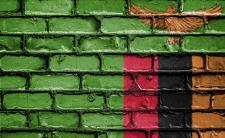
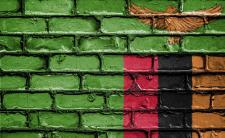
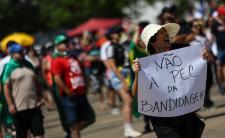
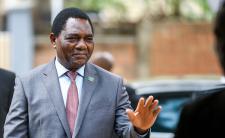
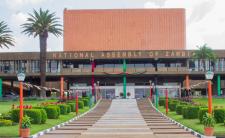
Share this article